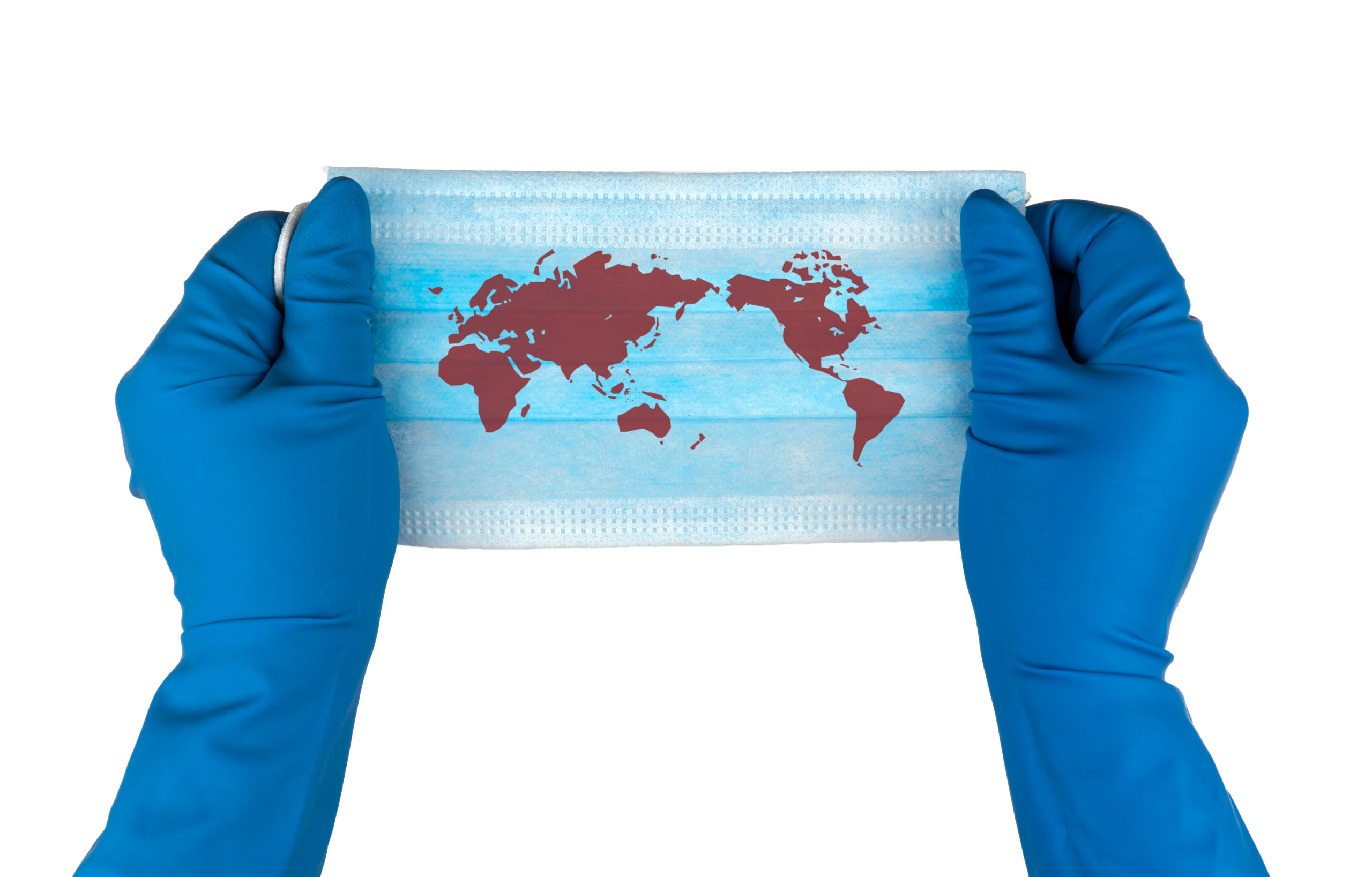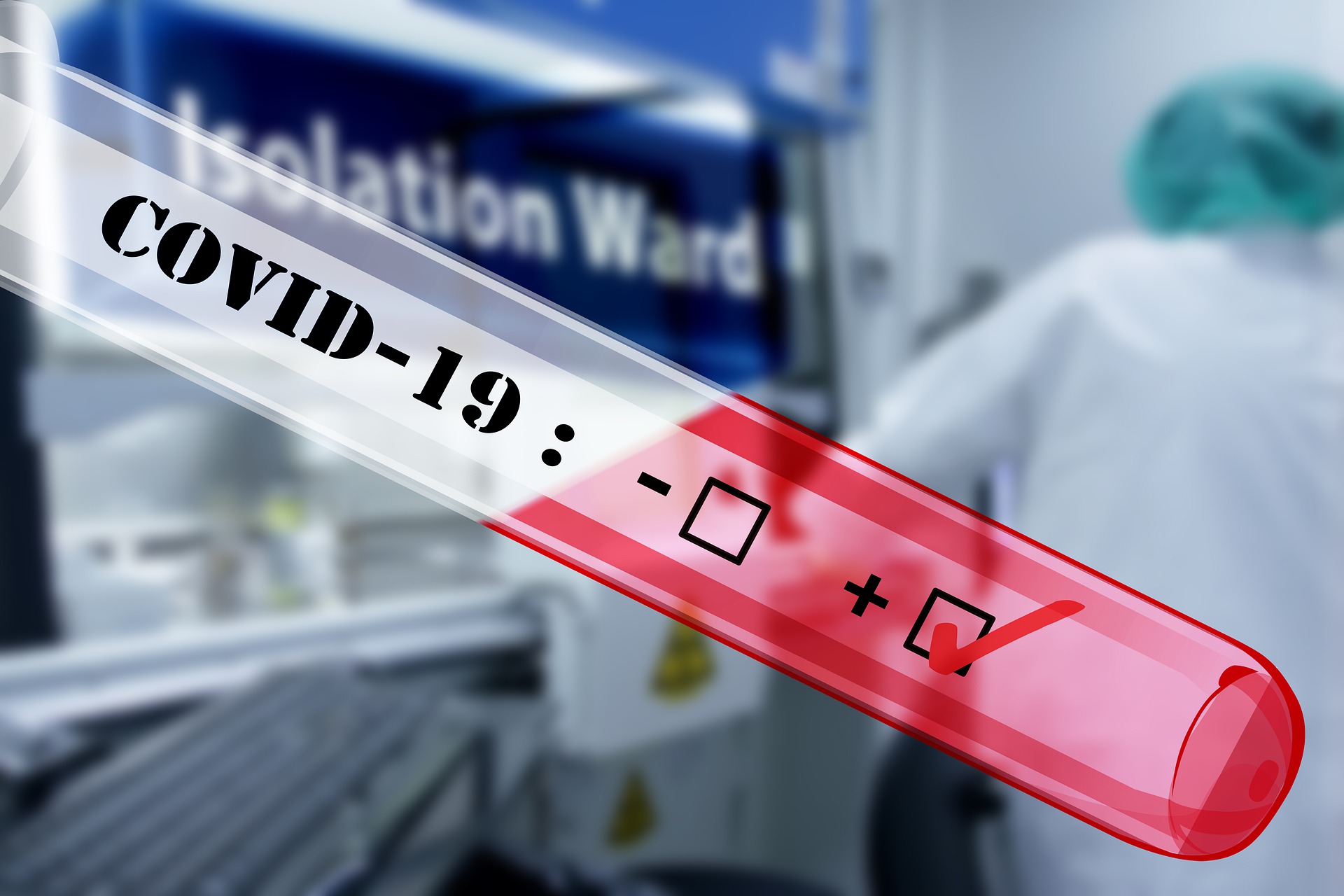Scientists from the University of Toronto have tested a mask that “deactivates” the SARS-CoV-2 virus that causes COVID-19. The mask is made by I3 BioMedical Inc. and was tested in a high-tech containment level three (CL3) lab at the University of Toronto.
The mask has an antimicrobial coating that kills the virus before getting to the person wearing it.
Xtalks spoke with Dr. Scott Gray-Owen, a scientist in the department of molecular genetics at the University of Toronto, about the mask that deactivates coronavirus.
“The breakthrough for the company [I3 BioMedical Inc.] was they figured out a way to apply it [antimicrobial coating] to soft materials,” said Dr. Gray-Owen.
When discussing the word “deactivate” Dr. Gray-Owen said that, “the bacteria is a cell that is alive and can be metabolically active. A virus is almost inert, and it doesn’t do anything outside of its target cell. Once it gets into the target cell, it becomes active, [as] it takes over the metabolism of the cell and starts replicating itself. So, the virus that you might inhale would not be alive and so that is why I kind of avoid saying that this will kill it, but it deactivates or inactivates, such that it’s no longer infectious.”

The mask by I3 BioMedical has a coating that alters traditional masks. The surface of the coated mask, when tested in the lab with a mammalian cell line, showed that the cultured virus that was in contact with the treated mask surface couldn’t be recovered, even after only a few minutes. This means they could not find any infectious viral particles whatsoever.
In other words, “when we say deactivated, it deactivated the virus or deactivated the viral suspension,” said Dr. Gray-Owen.
The antimicrobial coating on the mask consists of an iodine-based substance that the company spent many years developing. The chemical compound has been known to the public for a while as a disinfectant substance, but what the company was able to do was to apply it to a soft material – in this case, the outer layer of the mask.
The technique created by the company has been tested on other viruses such as influenza, with testing recently extended to the COVID-19-causing virus.
The reactive product, according to Dr. Gray-Owen, seemed to damage the surface of the bacteria or virus. “We’ve known for many years that iodine, for example, [is] used antiseptically to kill microbes on wounds or cuts or other surfaces of your skin, but the mechanism itself, even when we’ve looked into it, isn’t really well described,” he said.
The high-tech containment level three (CL3) lab at the University of Toronto tested the efficacy of the TrioMed Active Mask’s antimicrobial coating with referral from the Public Health Agency of Canada. They recognized that the lab has been active and operational for years now and it tended to be an HIV and tuberculosis focused lab, but tests other risk group three pathogens as well. In addition to an available testing facility, Sunnybrook Hospital in Toronto provided the lab with viral specimens from the first cases of COVID-19 patients in Canada. Scientists were able to culture and expand the virus from the patients and the lab was thus provided with fresh viral isolates.
The lab applied suspensions of the virus to their treated mask and for the untreated mask material they used standard medical masks. Afterwards, the researchers recovered the virus and layered it onto vero cells, which are immortalized monkey kidney cell lines that happen to be susceptible to the virus such that the virus destroys the cell completely.
“When we can’t recover a virus, it’s pretty obvious that these cells are very happy but when there’s a virus in suspension after being applied to the materials, then it devastates these cells there and is released from the plates in three days,” said Dr. Gray-Owen
Canadian-based company, I3 BioMedical, has been producing the coated masks for years and are sold all around the world, being targeted to frontline medical workers. But now with the spread of COVID-19, the mask is being made available to the consumer market and sold in drug stores to help stop the spread of the virus and flatten the curve.
The masks are one-time use, but Dr. Gray-Owen says that, “someday it would be fantastic if they could apply them to other medical masks” as well, such as reusable masks that are now being sold in the market.
The masks are able to combat various challenges that consumers face when wearing regular medical masks. “It’s really difficult to wear a mask if you’re not used to wearing one. There was a study published recently that said the average person touches their face 23 times per hour and so once you have a mask on, that increases even beyond that because we’re constantly readjusting them, they’re falling down or moving up or they’re not fitting comfortably. So, our hands are all over the mask is a problem because if there’s a virus on our hands, if we’re contaminated, we bring the virus to the mask and we could inhale it through the mask and infect ourselves,” said Dr. Gray-Owen
Also, if a person is sick with the virus, the mask could prevent it from spreading outwards as the virus would be deactivated on the mask’s surface. Therefore, if the virus is moving in both directions, the mask can prevent it from contacting the body, as well as protect against its spread to the outside surroundings.
“The fact that they [I3 Biomedical Inc.] are Canadian and they appreciate the challenges that Canadians have had at getting personal protective equipment, has enabled the company to really try to divert a lot of what they’re manufacturing to Canadian stores and Canadian medical workers, [and] also the general population as well, ” said Dr. Gray-Owen.











Join or login to leave a comment
JOIN LOGIN